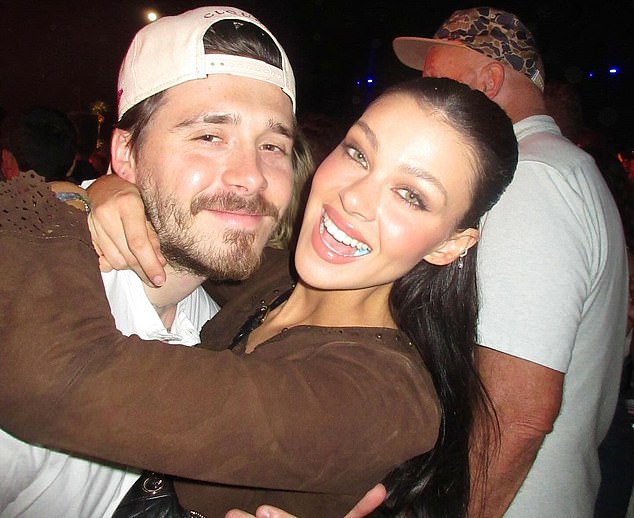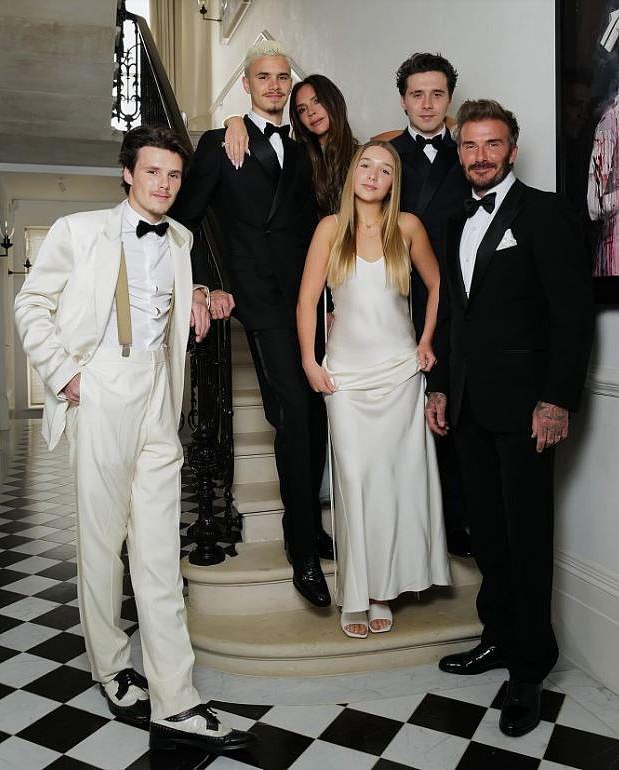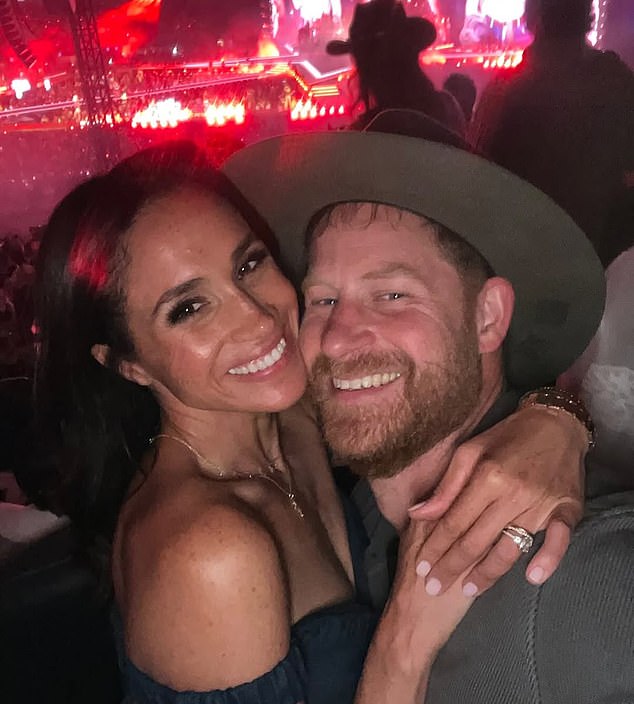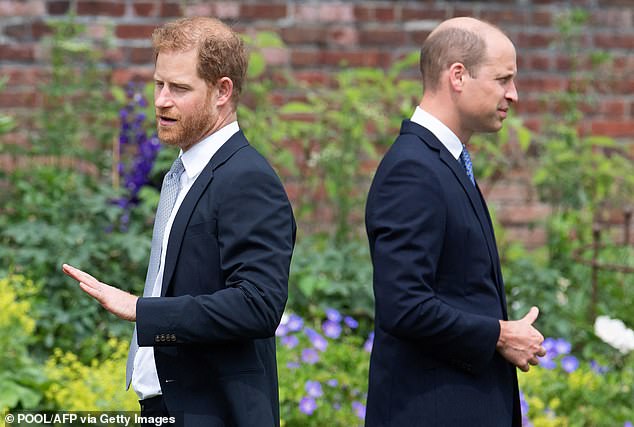Brooklyn Beckham’s romantic message to his wife Nicola, posted on Instagram at the weekend alongside a video of the couple riding a motorbike – ‘My whole world x I will love you forever x I always choose you baby x you’re the most amazing person I know xx me and you forever baby’ – was said to be ‘a dagger to the heart’ of his parents, David and Victoria.
For it seems the estrangement between two diametrically-opposed camps – ‘them’, David, Victoria and their other children, versus ‘us’, Brooklyn and Nicola – is gathering pace. Reconciliation, for now at least, is a fairly hopeless prospect.
This is desperately sad, but doesn’t surprise me. As a psychologist, I encounter family estrangement all the time – but when a couple rather than an individual is involved, it adds a unique dynamic to any dispute.
When one person falls out with their family, there’s room – however painful – for individual reflection, leading to a willingness to find a way forward.
But when a couple is involved, things get dangerously amplified. It’s no longer one relationship breaking down – it’s two ‘sides’ reinforcing each other, which makes it much harder for anyone to soften or shift.

It seems the estrangement between two diametrically-opposed camps – ‘them’, David, Victoria and their other children, versus ‘us’, Brooklyn and Nicola (pictured)

The Beckhams’ situation is more what psychologists would call a rupture – nothing has been said or confirmed that couldn’t be quietly walked back

Prince Harry and Meghan’s situation sees the ‘us vs them’ line drawn in permanent marker. They have doubled down on their version of events in interviews, books and a TV docu-series
We’ve seen this before, in a more extreme form, with Harry and Meghan versus the Royal Family. While the Beckhams’ situation is more what psychologists would call a rupture – nothing has been said or confirmed that couldn’t be quietly walked back – Harry and Meghan’s situation sees the ‘us vs them’ line drawn in permanent marker.
They have consistently doubled down on their version of events in interviews, books and a TV docu-series, each widening the chasm.
Our families – for better or worse – help define our identity. So when you’re no longer part of the fold, it can leave you feeling unanchored, as though you’re standing on the outside, watching life go on through a door you’re no longer allowed through. (Never mind that you might have been the one who stormed out of it in the first place.)
In a couple, this feeling of being locked out can draw them together. So, how does this ‘them and us’ narrative gain legs in the first place?
A couple form a strong emotional alliance 
Harry and Meghan, have formed a strong emotional alliance as they have navigated fame, scrutiny, and personal identity together
Once estrangement begins, loyalty to one’s partner becomes paramount. This creates a closed emotional loop: ‘We’re in this together and I will stand by you, no matter what.’
It’s an admirable instinct – but it can leave no room for nuance. The couple may feel they have to back each other 100 per cent, even if part of them harbours doubts or grief.
Both Brooklyn and Nicola, and Harry and Meghan, have formed a strong emotional alliance as they have navigated fame, scrutiny, and personal identity together.
They re-write the past together
Couples sometimes begin to reframe family history, coming to the view that things have always been unfair, toxic or harmful.
The Queen famously commented that ‘recollections may vary’ with regard to her grandson and his wife’s grievances. The more a pair revisits pain together, the more fixed their version of events becomes. And the more emotionally distant the family feels.
Anger helps create a powerful bond 
Harry (left) and his elder brother William (right) have become estranged in recent years
In times of conflict, couples may bond not just through love, but through shared anger, rejection or hurt. This ‘fusion’ can become the glue that holds them together, especially when they’re feeling emotionally isolated – but it makes it harder to challenge the story they’ve built. Opening up to the possibility of reconciliation can feel like betrayal.
Admitting doubt feels like weakness
Once a big decision like estrangement has been made – especially if it causes upset or gossip on a global scale – there is often a strong psychological need to stand by it no matter what.
Brooklyn’s life has played out on a global media stage that, until he married Nicola, saw him part of the social behemoth that is Brand Beckham. It was the same for Harry as part of ‘The Firm’. Losing that sense of identity will be hitting them hard. By forming a new ‘team’ with their wives, they can be persuaded that what they have now as a couple is stronger than anything they had while still in the bosom of the family firm.
Wider family becomes a ‘common enemy’
Families might blame the partner, while the couple may feel ganged up on. These assumptions only deepen the divide. Splitting the world into allies and enemies is a defence mechanism to avoid the emotional complexity of grief, regret or ambivalence. If you’re consumed with anger and feelings of being victimised, you will be unable to tackle the tougher feelings such as rejection and shame.
How to resolve couple estrangement
Resolution doesn’t have to mean sweeping everything under the carpet. It means finding a space where respect, boundaries, and empathy can co-exist.
It’s never too late to press pause and find a softer landing place.
Remove couple identity from conflict
It’s important for couples to remember they fell in love with each other long before they got embroiled in this fight. And also to avoid ‘always/never’ language.
Allow for grief before reconnection
Accept the pain that led to the estrangement without rushing to fix it. And acknowledge that the loss of family closeness is a genuine bereavement, even if it felt necessary at the time.
Try to avoid making grand gestures
Resolution doesn’t have to begin with fireworks. In fact, it often starts with a whisper. A text. A birthday card. A message saying: ‘I’ve been thinking about you.’ Avoid blame or reopening old arguments. Focus on emotional intent, not history.
Don’t let your ego take over
All parties need to be prepared to let go of hoping for an apology. Resolution comes when someone chooses connection over protection – just enough to allow healing to begin. Even the smallest acts of openness can start to melt the ice. If you feel safe doing so, involve a neutral third party to mediate early conversations.
Not everyone will meet you halfway
You can offer an olive branch, but you can’t force someone to take it. And that’s OK. Sometimes the act of reaching out is more healing than the response.
- therelationshipcounsellor.co.uk